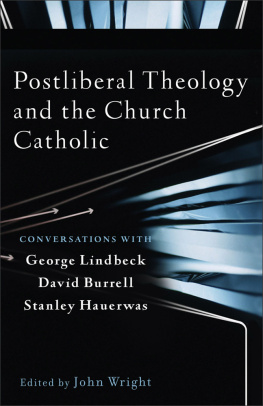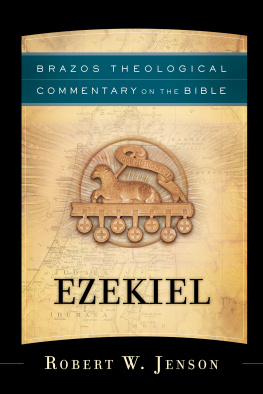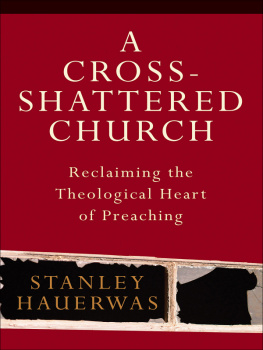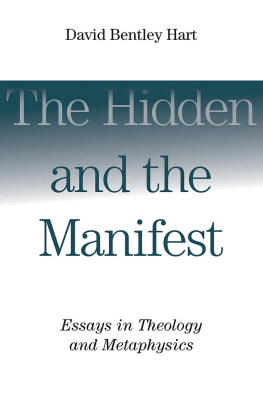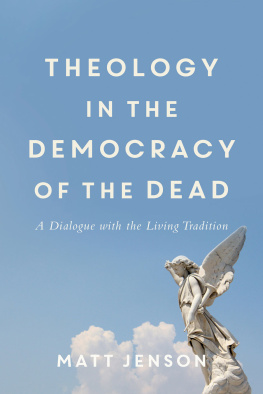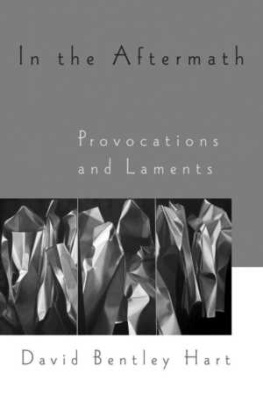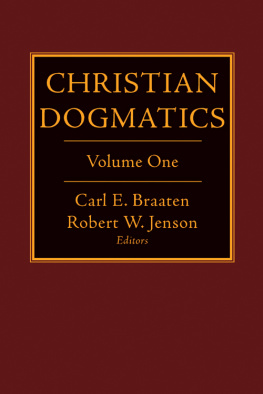The End Is Music
A Companion to Robert W. Jensons Theology
Chris E. W. Green

THE END IS MUSIC
A Companion to Robert W. Jensons Theology
Cascade Companions
Copyright 2018 Chris E. W. Green. All rights reserved. Except for brief quotations in critical publications or reviews, no part of this book may be reproduced in any manner without prior written permission from the publisher. Write: Permissions, Wipf and Stock Publishers, W. th Ave., Suite 3, Eugene, OR 97401 .
Cascade Books
An Imprint of Wipf and Stock Publishers
199 W. 8th Ave., Suite 3
Eugene, OR 97401
www.wipfandstock.com
paperback isbn: 978-1-4982-9082-1
hardcover isbn: 978-1-4982-9084-5
ebook isbn: 978-1-4982-9083-8
Cataloging-in-Publication data:
Names: Green, Chris E. W., author.
Title: The end is music : A companion to Robert W. Jensons theology / Chris E. W. Green.
Description: Eugene, OR: Cascade Books | Cascade Companions | Includes bibliographical references.
Identifiers: ISBN: 978-1-4982-9082-1 ( paperback ) | ISBN: 978-1-4982-9084-5 ( hardcover ) | ISBN: 978-1-4982-9083-8 ( ebook ).
Subjects: LCSH: Jenson, Robert W. | Theology.
Classification: BX 8080 J G 74 2018 (print) | BX 8080 (ebook).
Manufactured in the U.S.A. September 25, 2018
Scripture quotations are taken from the New Revised Standard Version Bible, copyright 1989 National Council of the Churches of Christ in the United States of America. Used by permission. All rights reserved worldwide.
Table of Contents
cascade companions
The Christian theological tradition provides an embarrassment of riches: from scripture to modern scholarship, we are blessed with a vast and complex theological inheritance. And yet this feast of traditional riches is too frequently inaccessible to the general reader.
The Cascade Companions series addresses the challenge by publishing books that combine academic rigor with broad appeal and readability. They aim to introduce nonspecialist readers to that vital storehouse of authors, documents, themes, histories, arguments, and movements that comprise this heritage with brief yet compelling volumes.
Titles in this series:
Reading Augustine by Jason Byassee
Conflict, Community, and Honor by John H. Elliott
An Introduction to the Desert Fathers by Jason Byassee
Reading Paul by Michael J. Gorman
Theology and Culture by D. Stephen Long
Creation and Evolution by Tatha Wiley
Theological Interpretation of Scripture by Stephen Fowl
Reading Bonhoeffer by Geffrey B. Kelly
Justpeace Ethics by Jarem Sawatsky
Feminism and Christianity by Caryn D. Griswold
Angels, Worms, and Bogeys by Michelle A. Clifton-Soderstrom
Christianity and Politics by C. C. Pecknold
A Way to Scholasticism by Peter S. Dillard
Theological Theodicy by Daniel Castelo
The Letter to the Hebrews in Social-Scientific Perspective
by David A. deSilva
Basil of Caesarea by Andrew Radde-Galwitz
A Guide to St. Symeon the New Theologian by Hannah Hunt
Reading John by Christopher W. Skinner
Preface
It is exceedingly difficult to write an adequate introduction or companion to a theologians work. This is perhaps especially true in cases where the theologian has written as much as Robert Jenson has written, and when their thought is as demanding and unusual as his certainly, and perhaps notoriously, is. Some would argue that writing about anothers work is also inevitably complicatedif not compromised from the beginningby either intense dislike for or intense devotion to it. All to say, it is virtually impossible to represent someones work fairly. So why try such a thing?
In the first place, there is no better way to honor a theologians contribution than by offering a critical and appreciative interpretation of it. I certainly mean to do just that: I owe a debt to Robert Jenson and his theology, and this book is one way of acknowledging that debt. Writing an introduction or companion to anothers work also provides readers who happen to be interested in Jenson the opportunity to gain new perspective on or insight into his work. Anyway, I know that I have learned from others readings of Jensonincluding those readings I find incredible and appalling, as well as those I find persuasive and enchanting.
On that note, I have to say that I find much of the criticism of Jensons work not only unfortunate but even unwarranted. It is something like criticizing the Brooklyn Bridge for not being in London or Saint Pauls Cathedral for not being built over water. Of course, it goes without saying that I do find serious problems with some of Jensons theological claims and maneuvers. But in this book I am trying to describe his work as charitably and faithfully as I can so that it appears in its own best light and as a gift to the church. It may very well be, as Jenson has said, that every theologians system is destined to be dismembered piece by piece and used up in ongoing debates. However, this is my attempt to envision the system as a whole and to recommend it as a beautiful, glorious word about the God we adore and the gospel we have been entrusted with. I have, as I said, a debt to him. If I can draw some others into the same indebtedness, then I will be doubly pleased.
Writing about a theology is inseparably bound up with what happens to you when you are reading it. What did the reading do to you? How did it wound? How did it heal? How did it bother? How did it enthuse? How did it confound? How did it illuminate? Thes e are the things that move one to write. What is more, writing a book like this one is perhaps the best way to learn truly how a theology works, how it hangs together as a whole. Readers of Jenson already know that he himself did it with Karl Barth and Jonathan Edwards; so, on this score I am merely imitating him.
I would not have been able to begin this project, much less complete it, without the constant encouragement of my wife, Julie, and feedback from friendsin particular, Steve Wright and Fr. Al Kimel. While on sabbatical, I met weekly with a group of students, colleagues, and friends for an informal seminar on Jensons theology. I am deeply indebted to them as well, for their remarks on and proofreading of early drafts of these chapters. In no particular order, then, thanks to Zach Bennett, Justin Arnwine, Fr. Kenneth Tanner, Silas and Abby Sham, Christopher Wayne Brewer, and Danielle Larson. This work is dedicated to you.
Introduction
How (Not) to Read Theology
There are any numbers of ways to read a theologians work, some acceptable and others unacceptable; some disciplined, and others lazy; some beneficial and others harmful. At the risk of creating yet another typology, I might suggest for heuristic purposes the following forms as characteristic of undisciplined reading: (a) hagiographical readings seek out passages that cast a theologian, her work, or both in the best possible light; at the exact opposite extreme, (b) combative readings seek out passages that (at least seem to) indicate the inadequacy or malignancy of a theological text or system; (c) exploitative readings, the favored strategy of gifted students and deadline-facing scholars, make raids on theological sources in search of proof texts that validate or invalidate some aspect of an argument; (d) exploratory readings are less violent, less consumerist, less rushed than these other undisciplined types, wandering more or less aimlessly through various sources with an eye out for anything especially beautiful or particularly useful. Disciplined theological reading, by contrast, takes one or more of the following forms: (e) diagnostic, (f) evaluative, or (g) formative : the first approach works painstakingly to identify the key features of a theologians thought as well as the origins of those ideas and the trajectories of their developments over time; the second approach passes judgment on the worthiness or unworthiness of parts or the whole of a theologians contribution; and the last posture seeks to engage a theologians thought in ways that train the imagination for skillful and faithful theological work.


